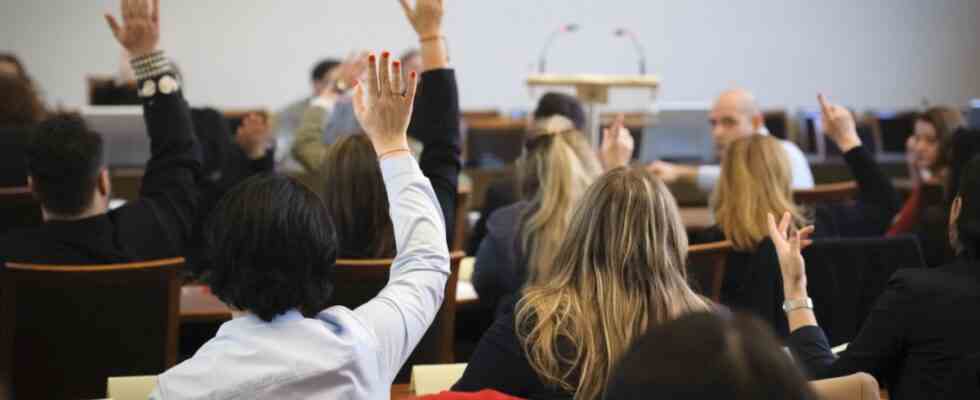At number 17 are those from “Born somewhere in Munich at home”, at five “Active for the Romanian community” and 23 is occupied by the “Carrier Association of Croatian House”: 24 lists are for the election to the migration advisory board on March 19 at the municipal office received electoral office. The committee represents the interests of a quarter of Munich’s population from 180 nations. This Friday, the electoral committee in the district administration department will decide which lists and candidates will be admitted.
In the last election to the Migration Advisory Board in 2017, 24 of the 30 list proposals submitted remained. The ballot heralded a turning point: the already chronically low turnout of Munich residents without a German passport in the election fell to 4.1 percent. In addition, there was great concern in the committee and in the town hall policy that the advisory board could be dominated by supporters of Turkish Prime Minister Erdoğan – but the liberal forces ultimately prevailed and prevented this.
A reform of interest representation should prevent a slide into insignificance and a takeover by right-wing forces. The Advisory Board and the parties agreed on that. The redesign plans, which the Greens then presented to the city council in early summer against the will of their coalition partner SPD and instead with the CSU, triggered heated debates. There was talk of an “affront to the Munich migration society” because members from outside are to be assigned to the advisory board in the future.
40 elected and ten seconded members
It has now been decided, against the will of the Advisory Board, that the 40 elected members will be given ten members with voting rights and 22 in an advisory capacity. “We have to find out how our honorary body can manage it at all,” says Dimitrina Lang, acting chairwoman of the advisory board. She still considers the innovation to be “paternalism”.
The incumbent chairwoman Dimitrina Lang criticizes the reform.
(Photo: Stephan Rumpf)
The native Bulgarian, who is again running as the top candidate on the Liberal list, sees it as a success that the election will be held together with the local elections from 2026 onwards and will therefore be more relevant. More visibility leads to higher voter turnout. That’s why they’re currently working on their appearance on social media, among other things. Paradoxically, the public dispute over reform has made the group more visible, says Lang. 50 to 60 candidates informed themselves about election formalities during their consultation hours. “Much more than before.”
At the beginning of the current term of office, the concern that Turkish nationalist groups could take over the helm was met with a resolution “in which we committed ourselves to democratic values”. There hasn’t been a “critical application” since 2017. “If this is viewed so critically from the outside, the authorities should exclude the lists before the election.” According to a spokesman for the district administration department, the same requirements apply to the approval of nominations by the migration advisory board as to local elections.
Lang’s wish: “We would like to deal less with internal problems and instead make politics for migrants.”

